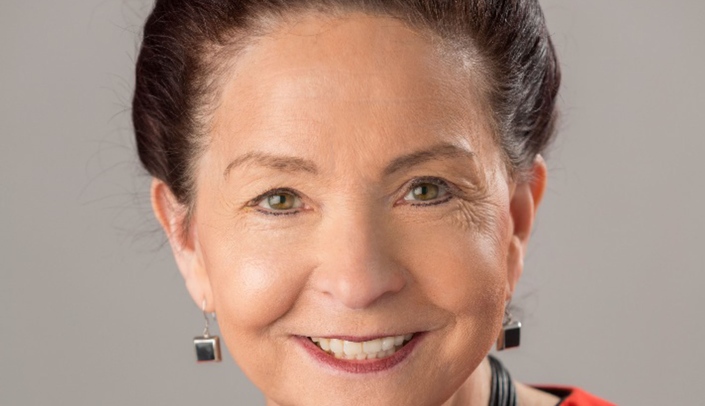One way to solve a looming estimated shortage of 27,000 geriatricians – physicians who specialize in care of older adults – is to expand the access of primary care professionals to resources that assist them in addressing the unique and complex health issues of older adults.
The U.S. Health Resources Services Administration (HRSA) estimates a need for 33,200 geriatricians in the U.S. by 2025, but current projections estimate the supply at 6,230, a deficit of about 27,000.
Thanks to a five-year, $3.7 million grant from HRSA, the University of Nebraska Medical Center is poised to address this problem.
Spearheaded by Jane Potter, M.D., professor in the UNMC Department of Internal Medicine Division of Geriatrics, Gerontology and Palliative Medicine, the goal is to improve the health and health outcomes of older adults in Nebraska by educating teams of health providers in primary care settings to benefit patients, their families and caregivers.
"Almost all care for older adults occurs in primary care settings," Dr. Potter said. "This grant will help create systems that integrate approaches to the special care of older patients. Health issues in older people are more complex, and a lot of training in medicine currently is not focused on issues important for older adults. As the population continues to grow and age, it is imperative that we help primary care teams fill the knowledge gap."
The grant will provide education to teams in primary care using a medical home (PCMH) model. PCMHs use a team of health care providers – including physicians, nurses, nurse practitioners, physician assistants, mental health professionals and social workers – to care for patients as a team when they’re sick, but also keep them well.
The grant also includes:
- education and support for caregivers of persons with dementia;
- addresses the social determinants of health; and
- educates patients beginning to use opioids on the risks, benefits, and alternatives of these medications.
Al Fisher, M.D, Ph.D., chief of the UNMC Department of Internal Medicine's Division of Geriatrics, Gerontology and Palliative Medicine, said the grant award reflects Dr. Potter’s expertise.
"There are limited number of these programs nationally to compete for, and we are the only one in Nebraska," Dr. Fisher said. "This is a HRSA program designed to increase the use of geriatrics principles in several partner community clinics along with the Nebraska Medicine primary care practices."
The Geriatrics Workforce Enhancement Project will be a five-year partnership between UNMC, primary care practices in Omaha and 13 rural counties, the Eastern Nebraska Office on Aging, and the Alzheimer’s Association Nebraska Chapter.
Partners
UNMC partners include the UNMC Colleges of Medicine, Public Health, Nursing and Pharmacy, OneWorld Community Health Centers, Inc., Nebraska Medicine, Ponca Indian Health, the Eastern Nebraska Office on Aging, and the Alzheimer’s Association Nebraska Chapter.
Grant objectives
- Partner with at least 10 primary clinics to create "age friendly" primary care practices;
- Partner with the Alzheimer’s Association Nebraska Chapter to provide caregiver education and support through the primary care clinics and all 14 patient-centered medical home clinics at Nebraska Medicine;
- Partner with the Eastern Nebraska Office on Aging to address the social determinants of health for patients in the practices and provide more education about and access to, community-based resources; and
- Use a new state law mandating patient education on the benefits, risks, and alternatives to opioid prescriptions to reduce the number of patients transitioning to the use of chronic opioids.
We are Nebraska Medicine and UNMC. Our mission is to lead the world in transforming lives to create a healthy future for all individuals and communities through premier educational programs, innovative research and extraordinary patient care.
Twitter | Facebook | Instagram | YouTube | Flickr
